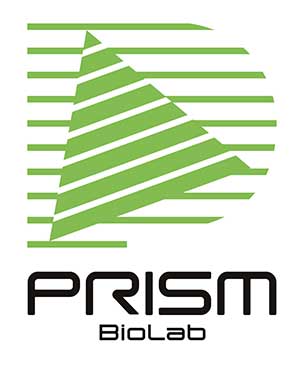Published on: 10月 2, 2024
Innovation in technology have brought about paradigm shifts in pharmaceutical science. The landscape of pharmaceutical industry has changed its appearance over the decades, driven by the necessity to adapt itself to consumer expectation, regulatory forces and demographic shifts. It is substantially required for pharma to keep themselves updated and adjusted to the upcoming era so as to thrive in the future world.
Here is a novel textbook for pharma written by a group in Pfizer.1) The authors’ intention is to present the transformational trends for the players in pharmaceutical and associated industry to facilitate the adaptation to the recent rapid changes. They alert that continuing to follow a linear pathway from drug discovery to market with minimal emphasis on customization, patient engagement, leveraging technologies results in failure in obtaining the opportunities in this rapidly evolving era. It is necessary to break away from the legacy systems in order to remain competitive and successful.
The textbook consists of four chapters and they are summarized across both pages of the spread of a textbook.
- Digitalization
- Personalization
- Collaboration
- Innovation
Digitalization, or digital revolution, is transforming all industries and it is now pivotal to take advantage of expanding opportunities in digital technologies. In pharmaceutical industry, implementation of digital platforms and services, application of data analytics and incorporation o AI/ML-based, data-driven approaches are playing key roles for increasing operational efficiency, effectiveness and experiences. Through the process of digitalization, evaluation of how to apply digital technologies to enhance them and the transition brings both opportunities and risks at the same time. But it is indispensable in this age of data application and serves as a basis of personalization, collaboration and innovation.
Personalization in health care is aided by the data and computing technologies. AI-driven analysis of omics data is a representative example to realize personalized medicine. Big pharma like Pfizer is encountering a shift towards personalized medicine, and tries and adopts novel technologies and methodologies. Personalization has challenges not only the presence of small populations for each treatment and commercialization but also the issues on ethical and legal matters. Update of regulation, investment in the foundational technologies, and acceleration of patient engagement are strategically appreciated to mitigate the risks to shift toward personal medicine.
Collaboration has long been adopted in pharmaceutical field but its necessity and requirements are rapidly changing in the evolving landscape. Collaboration here does not necessarily mean the technological ones between a pharmaceutical company and a biotech. The demand for collaboration among siloed partners, patients, physicians, manufacturers is rapidly raising these days. A representative paradigm in collaboration is to use AI as a tool or process improvement as well as developing a medical device. Collaboration with an established technology is the easiest way to incorporate AI into the drug discovery and development process. Other previously distinct organizations need to be intensely integrated for digitalization, personalization and innovation as well.
Innovation is indispensable for pharmaceutical industry to thrive in the competitive field. innovation cycles are shortening owing to the data science and collaboration. A recent example is generative AI for designing drugs. Predictive strategies of AI is also widely investigated and it could open the door for novel drug discovery, development and repositioning. Innovation needs to be accelerated in a comprehensive manner. integration of insights from digitalization, personalization, collaboration and the company’s own knowledge and experiences is the trigger of innovation.
Agility and long-term investment in innovation is a key to survive in the rapidly changing landscape. Continuous efforts for adaptation not only to the current state but also to the coming changes in the near future is requisite in this field. This rewritten textbook offers us a basic mindset in pharmaceutical industry.
We are always eager to collaboration to accelerate the innovative research and drug discovery. Please contact us if you have interesting technology to see if we can collaborate for innovation. Our PepMetics® is a unique technology and we would appreciate it if you want to try it in your drug discovery project as well.

